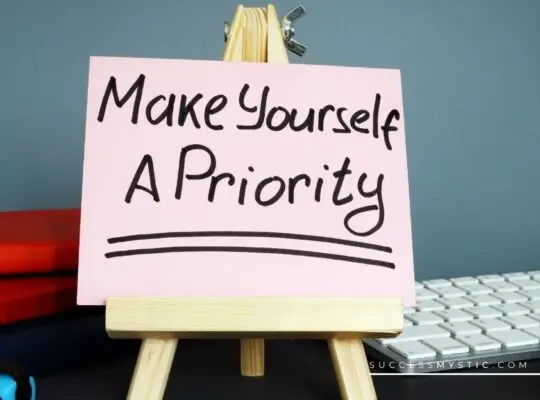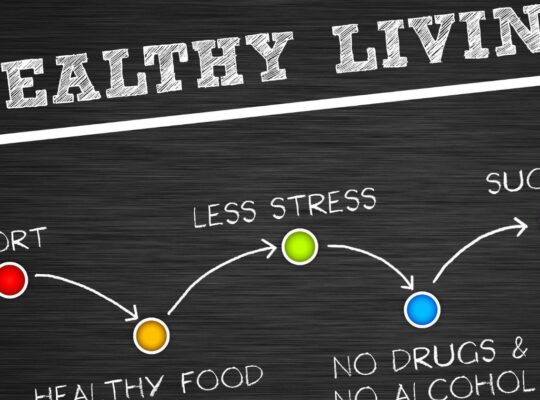In this article: How to change your internal vocabulary to better appreciate!
“Sticks and Stones may break my bones, but words can never hurt.”
When you were a kid one of your peers probably sang out that taunt in retaliation for something nasty you said to her. Conversely, at one point or another, you’ve sang that out to someone in return. It points out the fact that words have no mass, and therefore cannot hurt us- but it’s not really as simple as that. Is it?
Words are invisible to the eye, although we can see the shape a mouth takes when words pass through someone’s lips. They have no physical form, and so we are all taught that they cannot do physical harm, yet we feel their consequences.
Words have the power to build us up or break us down both as a society and as individuals.
Don’t believe me?
Google “the Cuban Missile Crisis.”
According to the Doomsday Clock, we’re currently sitting at 2 minutes to midnight. Yet, the Cuban Missile Crisis is the one single event in our history which could have launched our parents and grandparents in to WW3 years before many of us would be born.
Granted, there have been other international incidents and threats lobbed across the ocean via twitter in the past years, but the Cuban Missile Crisis is the one incident that in and of itself had the power to have devastating consequences.
In the end, it was neither aggressive acts nor visual demonstrations of power which diffused a potentially catastrophic situation. It’s said to have been words: A series of conversations between diplomats and world leaders. Yea, they’re the ones that probably got us into that situation to begin with, but it was words that ultimately saved us.
The Physical Effects
Every Psychology student, when starting their collegiate career, takes some form of “Psych 101” or “Intro to Psych.” We’ve all spent a full semester learning a about the physical anatomy of the brain, the central nervous system, and how the internal processes of our bodies are linked.
For example:
Your entire nervous system is separated into two major separate systems- the Central Nervous System (CNS) and your Peripheral Nervous System (PNS).
Your Central Nervous System (CNS) is comprised of your brain and spinal cord. It’s in charge of controlling your body’s functions and interpreting then responding to all of the information your five senses feed it. All of the information that your body receives anytime you see, hear, taste, smell, or touch anything is processed through your CNS. This includes information which you are, both, aware and unaware of.
Your PNS separates your Motor and Sensory Neurons. Sensory neurons carry information from your sensory receptors. Interneurons are responsible for neuron to neuron communication. Motor neurons are responsible for transmitting information and commands to your muscles and glands.
Your Motor Neurons are further divided between your Somatic Nervous System and your Autonomic Nervous System. Your Autonomic Nervous System (ANS) has two divisions:
Sympathetic and Parasympathetic.
As a whole, the function of the entire nervous system is to kick in appropriate responses given specific stimuli. When you’re in danger, your nervous system reacts to the stimuli by kicking you into fight or flight mode. One of the primary functions of the ANS is to interact with your endocrine system which is the bodily system in charge of your emotions.
Any time you feel anger, fear, love, jealousy, envy, happiness, elation, etc., your endocrine system has been activated by your Autonomic Nervous System because internal or external forces have moved on your nervous system as a whole. This can be seeing your best friend kiss your boyfriend, getting great news, a neighbor harassing you as you walk by with your dog, your mother kissing your forehead, or your inner voice telling you that you’re just not good enough.
Self-Esteem, Self-Confidence, and Self-Fulfilling Prophecies
Webster’s New Riverside University dictionary has two full pages where it defines variations of “self” words.
- Self-Esteem
- Self-Confidence
- Self-Trust
- Self-Satisfaction
- Self-Reflection
- Etc.…
Self-Esteem
Self-Esteem is your satisfaction with yourself (Webster’s II New Riverside University Dictionary (Boston, Ma, Houghton Mifflin Company, 1984) 1058-1060). It’s your confidence in your worth and abilities.
Most importantly, it’s your emotionally based appraisal of your own worth which you’ve developed through the lens of how you think, feel, and act. Your self-esteem is the value you’ve assigned to your worth to the world.
Your Self-esteem is directly linked to your achievements, whether you have good or bad relationships, and if you find your life satisfying (Burton, M.D., “Building Confidence and Self-Esteem” Psychology Today. 30 May 2012.).
It will affect whether you see the world around you as hostile or hospitable. It will affect your relationships with others, and it is rooted in our childhood, our adult experiences, and the way we speak to ourselves. Conversely, our intrapersonal relationships, and quality of life are highly dependent upon our Self-Esteem.
Self-Confidence
Although we tend to use the terms “Self-Esteem,” and “Self-Confidence” as if they are interchangeable words, phrases, or concepts they’re actually two very different aspects of our life-skills repertoire (Burton M.D., Neel. “Self-Confidence Versus Self-Esteem.” Psychology Today 19 October 2015. ref.).
Confidence is defined as trust or faith (Webster’s 1984, 297).
Its core meaning is the “absolute certainty in the trustworthiness of another (Webster’s 297).
Self-Confidence is your confidence in your abilities (Webster’s 1058). It is your ability to trust in your aptitude, education, and skill sets to see you through an event.
You can have all the skills you will ever need speak publicly, drive, stand-up for yourself against a bully, or deliver a report to your boss but if you don’t have the self-confidence necessary you won’t be up to the task. Short of having the self-confidence to perform tasks you are skilled at or educated for, Courage can often be substituted in the unknown; but that only goes so far.
A Self-fulfilling Prophecy
A Baghdad merchant sends his servant to the marketplace to buy provisions. While there, the servant has a fright when he sees a woman he knows as Death. She makes a threatening gesture at the servant who flees the marketplace. He takes the merchants horse and flees Baghdad altogether so that he can put some distance between him and death.
Later that night, upon his arrival in Samarra, he stops for the night to rest. At the inn he sees, to his fright, Death. He asks her, “Why did you threaten me this morning? Why did you follow me?”
She responds, “I haven’t followed you. I didn’t mean to frighten you. I was startled to see you in Baghdad this morning because I knew that I had an appointment with you this evening here in Samarra.”
A self-fulfilling prophecy is a prediction you make only to have it come true because you made the prediction. Your ideas become reality simply because you believe they will. Often times, your attitude about a situation, the way your inner voice talks to you, or the way you feel about being in the presence of particular people will cause your predictions to come true. In the beginning, your predictions may have no basis or foundations, but because you made a prediction, that prediction will affect your behavior and beliefs which will, in turn, affect the outcome to your prediction.
We have a man name John Merton to thank for pinning down a term and definition for a phenomenon we’ve all experienced in our personal lives and read about in popular literature.
A common era example:
John and Tosha have been married for five years. They have two beautiful children together. John was fresh-out of high-school and Tosha was finishing up her senior year when the two met. Within a year Tosha found out she was pregnant with John’s child, and the two married.
It wasn’t a perfect union made for all the right reasons, but they had a reasonably comfortable and happy life together. Then, one day, John reconnects with an old friend from high-school, Jessica.
Jessica and John haven’t spoken since Jessica married Eric. Eric was abusive, and he cut Jessica off from her family and friends shortly after their wedding. This was right before John and Tosha met. John was surprised to walk into the pharmacy one day to see his old friend Jessica behind the counter, but he wasn’t surprised when Jessica told him about how she left Eric and was re-establishing herself.
Jessica was in no place for a relationship. She knew this and embraced it. Also, Jessica and John’s relationship had always been one of friendship- nothing else. The went fishing together in high-school, double-dated, and played paintball as kids. In reality, they were more like brother and sister.
As Jessica and John re-established their friendship, John introduced his wife, Tosha, and their two children, Jarrett and Jasmine, to Jessica. They had family gatherings, game nights, and dinners over the course of about two years.
In that time, Jessica and Tosha became close. Jessica had spent the past two years fighting and digging her way out of the hole her ex-husband, Eric, put her in, so she still wasn’t dating anyone. She turned down all of Tosha’s attempts to fix her up and shied away from all of the potential love-connections that Tosha introduced her to at their game nights.
Eventually, Tosha started to believe that John and Jessica were having an affair behind her back. In front of his family and hers, Tosha openly accused John of having an affair with Jessica. Over the following months Tosha made several accusations about John’s behavior with Jessica. Tosha refused to confront Jessica and John never says anything to her about Tosha’s accusations.
After about six months of this, John finally confided in Jessica that he’d had an affair with a woman he met at work. It started about three months after Tosha began making her public accusations of Johns behavior.
Our thoughts can dramatically alter our behavior.
Self-Talk
The source of self-talk is your inner voice. You know the one: That inner voice that either tells you kind and helpful things like “you’re going to have a great day today,” or critical things like “you’ll never be any good at this.”
The content of your self-talk is the script you use to frame your day to day life. It affects your emotions and has the power to create self-fulfilling prophecies. This can be good or bad because self-talk can be positive or negative.
Positive self-talk is supportive and affirming. Those of us who engage in positive self-talk tend to view the world in a positive way, and we usually feel better about ourselves. We know that we can’t control what happens all the time, but we always have control over our actions and reactions.
Negative self-talk is negative and defeating. It can be unrealistic and harmful. For some, their negative self-talk becomes paralyzing, sticking them into inaction and self-absorption to the point that the world around them disappears.
Negative self-talk can sound grounded, realistic, plainly critical, or just mean. To figure out if you’re taking part in truly Positive Self-talk, Negative Self-Talk disguised as positive, or plain and simple Negative self-talk, then take a minute to assess your inner voice.
This “minute” will unfold over the period of a few days, but over the next few days, take some time to pay attention to the way you talk to yourself.
Then, consider how you’ve been talking to yourself over the period of a lifetime.
- Are the things you say to yourself generally helpful?
- How are they helpful?
- Do you replay upsetting thoughts or cringe-worthy moments from your past?
- How do you feel after you engage in inner discussion?
Negative self-speak can take several forms.
- All-or-Nothing Thinking
- Overgeneralization
- Mental Filter
- Disqualifying the positive
- Magnification and Minimization
- Jumping to Conclusions
- Magnification and Minimization
- Emotional Reasoning
- Should Statements
- Labeling and Mislabeling
- Personalization
(Scott, MS Elizabeth. “Cognitive Distortions and Stress.” Very Well Mind. 12 July 2018. ref.)
1| All-or-Nothing
All-or-Nothing thinking is a thinking pattern formed around extremes with no room for gray areas. When you use this form of inner dialogue you will resort to phrases which include words like “always,” and “never.”
- I’m never going to get that promotion.
- My boss never listens to me.
- Nobody in my family respects me.
- He always gets his way, and I never get mine.
- I’m never going to understand,
- I will always suck at this sport, or skill set.
Taking part in inner dialogue that leaves no room for gray areas leaves no room for the possibility of growth or learning. It’s tiresome to hear others express themselves in this way externally because it’s incredibly childish.
2| Mental Filter, Magnification and Minimization, Disqualifying the Positive
These two are very similar, and often go hand in hand. In either case, this type of dialogue is used by people who will completely glaze over the good things in their lives. Using mental filtering, or magnification and minimization makes it very hard for us to be grateful for the amazing aspects of our lives, and amazing people in our lives.
- I didn’t get a raise with my promotion
- I got a raise, but when will I get that promotion, they owe me
- I got an A for my part in the group report, but our overall grade was a B. I wish my partners would’ve actually put in their fair share of the work.
- I can’t take my dog to every park because of her breed (but I love my dog and wouldn’t trade a minute that I’ve had with her).
- My husband forgot to pick up the sugar from the store (but he remembered everything else).
3| Overgeneralization, Jumping to Conclusions, and Emotional Reasoning
Overgeneralization is where your inner voice takes an isolated event and assumes that the worst part of that event will apply to all events in the future. Jumping to conclusions is when you come to a conclusion without having considered all of the facts. Then, when the facts start coming in, you fit them into your conclusions rather than the right way around.
Emotional reasoning comes into play when you base your conclusions on how they make you feel rather than the facts, or you ignore facts you don’t like.
- Dinosaurs couldn’t have existed because the world is only 6,000 years old.
- John must be having an affair with Jessica because she’s refusing to date anyone, I set her up with.
- All McDonald’s employees are rude (and this is based off of one being rude to you 20 years ago).
4| Should Statements
To believe the “should” statements your inner voice feeds you, you have to have a very rigid set of rules that you live by, and by which you expect everyone else to live. People who live by “should” statements only have room for their own sets of values and mores. They don’t leave room for the possible validity of other people’s opinions or ways of life. These types of statements and thought patterns have led to more atrocity through genocide, self-inflicted pain, open prejudices, and holy war than any other thought patterns throughout history.
- I should always behave this way
- I should get this project done today
- She should believe this or do that moral thing rather than behave any other way.
4| Labeling and Mislabeling
This internal dialogue often leads us to label ourselves or others in a one-dimensional way. It excludes any possibility for the complexity of the human condition. It also incites an unfair amount of name calling and finger pointing.
- She’s a brat
- He’s a gossip
- She’s a liar
- He’s a flake
5| Personalization
Have you ever been in a situation where someone told you that your haircut looks uneven, or maybe someone criticized something creative that you did?
How did you take their feedback?
If you were offended, you personalized the situation.
You may find yourself doing this to yourself.
The trouble with taking things personally is that feedback is rarely meant to be critical- unless animosity is also involved. Either way, it’s up to you to take responsibility for how you feel about feedback you receive, or how someone talks to your or generally treats you. You may not be able to control every aspect of your life, but you can certainly control your inner dialogue and how you react to external dialogue. Taking it personally is the difference between feedback and criticism.
Words and Self-talk
Now, consider what you just read. Verify the information if you feel the need. But, consider all the factors, and then answer this single question.
Do words have the power to hurt you physically?
They do.
Words may not be able to break your bones, but they can certainly have an impact on your emotions. We know that what we give our attention to affects us (Wadlinger, Heather A., Isaacowitz, Derek M., “Fixing our Focus: Training our Attention to Regulate Emotion,” Per Soc Psychol, 15,1 72-102).
It doesn’t matter if what we’re paying attention to is external dialogue we’re sharing with a friend or other loved on, or if that dialogue is internal. How you talk to yourself matters.
We all have an internal monologue that we entertain and engage in constantly. Recent research has shown that the way we refer to ourselves, and the self-talk we entertain influences our emotions and our ability to regulate our thoughts (Kross, Ethan. Bruehlman-Senecal, Emma. Park, Jiyoung. Burson, Aleah. Dougherty, Adrienne. Shablack, Holly. Bremmer, Ryan. Moser, Jason. Ayduk, Ozlem. “Self-Talk as a Regulatory Mechanism: How you do it Matters.” Journal of Personality and Social Psychology, volume 106, no2, (2014): 304-324).
Emotional Responses
If your best friend says something rude to you, your nervous system is going to pay attention to the stimuli which it’s now faced with. When this happens, you will experience a physiological response. That’s your nervous endocrine systems responding to those things that we are taught can’t hurt us because they have no physical form.
When someone says something hurtful to us, many of us are taught to speak up and stand up for ourselves. We’re also taught that many people don’t fully understand the impact of words, so pointing out how you feel can be helpful.
Either way, you’re not likely to let one person continuously run you down, say nasty things to you without consequence, or be in your life if they’re not conducive to your overall happiness.
So why would you allow your inner voice to do any of those things?
Now, consider all the hurtful things you’ve told yourself over the entire span of your lifetime.
- I’m no good
- I’m out of his league
- I can’t believe she picked him over me
- It’s too hard
- I can’t
- I might as well give up
- People don’t like me
- They never will
- I’m not worth it
- There’s no use
- Why bother
- I suck at this
- I’m always in trouble
- I’m such a loser
- I’m completely alone
- I’ll never be as good as him
- She’s way better than me
- I’m a horrible person
Rewording Your Inner Voice
How does it feel to be told that “you’re simply not good enough?” The problem with many of these internal statements is that they’re grounded in defective cognitive distortions, and they’re not helpful. Allowing your inner voice to tell you that you’re not good enough for something precludes the possibility that with practice you will get better.
With time you will improve. Eventually, if you apply yourself enough, your coach, boss, or parent will catch on. It excludes the possibility for personal development and disallows for a positive future.
Now, consider this…
Would you tell your best friend, sister, brother, boss, or co-worker that they’re not good enough? Would you tell someone who you truly care about that they’re “such a loser,” or that they’re “completely alone” with the same type of malice you use when you speak to yourself this way?
No, you wouldn’t.
It’s time to be a little kinder to yourself. Remember, that you might often disguise your negative inner monologue as “practical,” or “honest.” It’s time to consider how you really talk to yourself, and the basis of your intrapersonal relationship.
The form of self-speak that you take part in and allow yourself to indulge in is going to directly impact your self-esteem and self-confidence because it’s going to have an impact on your emotions. Negative self-talk and negative inner discussions are often the result of a low self-esteem and are also generally the cause of a low self-esteem: Self-fulfilling prophecies.
Your overall self-esteem does not exist in a vacuum. Your confidence may in certain situations. If, for example, you are confident in your ability to drive, but you lack confidence in your ability to speak publicly this is one example of where your self-confidence might exist in a vacuum of sorts. However, how you allow your inner voice to relay messages to you is going to either tear down your self-esteem or build it up over time.
Pay attention to that inner voice. We all talk to ourselves. It’s completely normal. What’s not healthy, however, is allowing that voice to tear you down. Spend some time alone working on your intrapersonal relationship and addressing your inner monologue.
Address how your inner voice and self-speak make you feel. If it makes you feel tired and worn down, then it’s time to challenge that inner voice. We, as humans, are prone to negative self-talk and all-or-nothing thinking. When you pay attention to your self-speak you get a better idea of where it’s coming from and what it’s saying.
When you feel yourself being critical, learn to stop the criticism and redress it. Your thoughts and feelings aren’t always realistic. Sometimes, they’re emotional responses to external or internal stimuli. Getting frustrated because you fail a test or are asked to make revisions on a project you’ve submitted, is no reason to tell yourself that you’re “not good enough, and never will be.”
Contain any damage done by negative self-speak by containing it: the negative self-speak and the damage. Don’t allow yourself to criticize certain things in your life. Build a mental wall around areas that you want to be part of your “fortress of solitude.”
Sometimes, even when you catch yourself being negative about your actions, abilities, or existence, it’s still difficult to completely change the wording, verbiage, or polarity. So, when this becomes too difficult, try making it neutral. “I’m not good enough,” becomes “I need more practice at this.”
Challenge your inner critic by asking yourself where the negativity is coming from, and what it’s founded on. “I’m not good enough,” is connected to “Why do I think I’m not good enough?” or “What can I work on to help myself improve”
Consider your friendships and family members. If you’re having trouble in a particular situation, try talking out your feelings with someone you care about, and who cares about you. Get their perspective and be open to it. Sometime saying it out loud, even in an empty room, may be enough to show you how ridiculous your inner voice can be. A friend or family member can help you to understand how cruel you’re being to yourself and address your inner voice so that you can be kinder to yourself.
Finally, remember that if you wouldn’t make that comment about not being good enough, or sucking at life, to a friend or loved family member, then you shouldn’t be saying it to yourself. It needs to be challenged, addressed, and restated. You wouldn’t be unkind to your family and friends, so why not be kinder to yourself.







